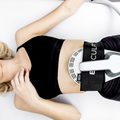
Are you struggling to achieve your desired weight despite following a diet? Losing weight can be challenging, and solely relying on reducing calories and increasing exercise may not be enough. However, there is another approach you can try: increasing your water intake. Drinking an adequate amount of water can potentially help you on your weight loss journey and boost your confidence. In this guide, we will explore how water can contribute to weight loss and discuss how much water you should drink.
Water is not a magical solution for instant weight loss, but it can support your efforts in various ways. Firstly, water is calorie-free, so it won't add to your overall calorie intake. Additionally, drinking water can make you feel fuller and act as an appetite suppressant, helping to curb your snacking habits. Moreover, water can increase your resting energy expenditure, leading to a higher calorie burn. By simply incorporating more water into your routine, you can potentially lose more weight.
Determining the ideal amount of water to drink for weight loss is a personalized process. While some sources suggest drinking around eight glasses or two liters of water per day, the actual amount depends on individual factors. Factors such as exercise intensity, age, and breastfeeding can affect your hydration needs. Therefore, there is no specific answer to how much water you should drink for weight loss. The best approach is to listen to your body and pay attention to certain indicators.
Feeling thirsty is an obvious sign that you need to drink water. However, if you haven't been drinking enough water regularly, you may not experience thirst as frequently. Increasing your daily water intake to at least two liters can help reset your hydration system and make you more attuned to your body's signals. Headaches, fatigue, and bad moods can also be indicators of dehydration. By increasing your water consumption, you can alleviate these symptoms and feel more energized and focused throughout the day. Monitoring the color of your urine is another way to assess your hydration level. Pale straw-colored urine indicates good hydration, while darker urine suggests dehydration. Adjust your water intake accordingly.
When it comes to obtaining water, it's best to stick to plain water as your primary source. While lemon water and other beverages like tea and juices can contribute to hydration, be cautious about their sugar content and potential dental issues. Lemon water in moderation can provide a vitamin boost and aid in detoxification. However, water should remain your main focus. It's important to note that hydration doesn't solely rely on water consumption; fruits and vegetables with high water content, such as apples, cucumbers, and oranges, can also contribute to your overall hydration.
In conclusion, there is no definitive answer to how much water you should drink for weight loss. It's crucial to listen to your body, understand its signals, and adjust your water intake accordingly. Proper hydration can support your metabolism and help you achieve your weight loss goals.
At Ascend Aesthetics, we’re experts at healthy weight loss and know how you can become more confident with your weight healthily, safely, and for the long term. Are you ready to get started on the path to a healthier you? Learn more about the ChiroThin weight loss program to decide if it’s right for you!

Ascend Aesthetics
Contact Me



